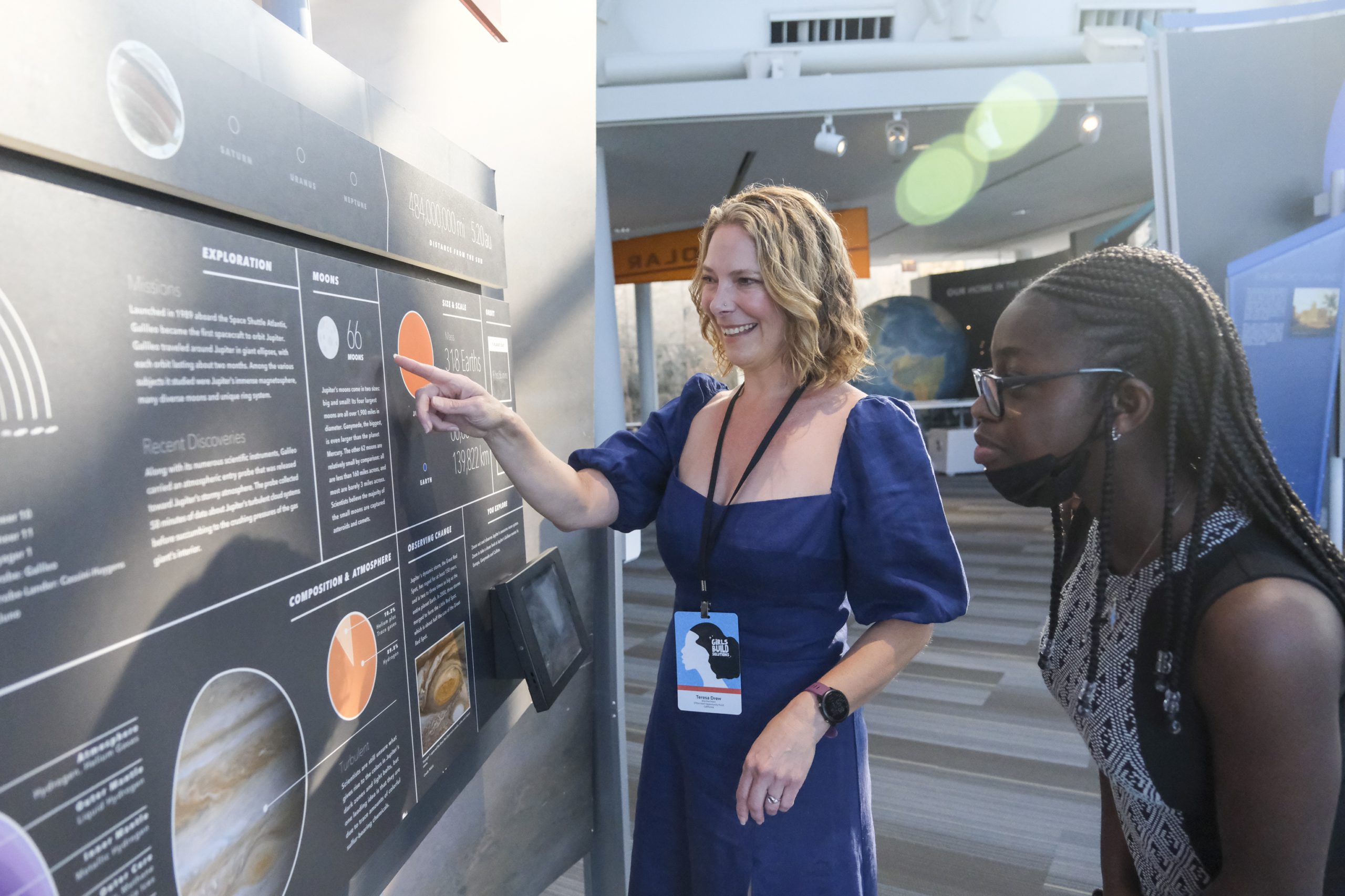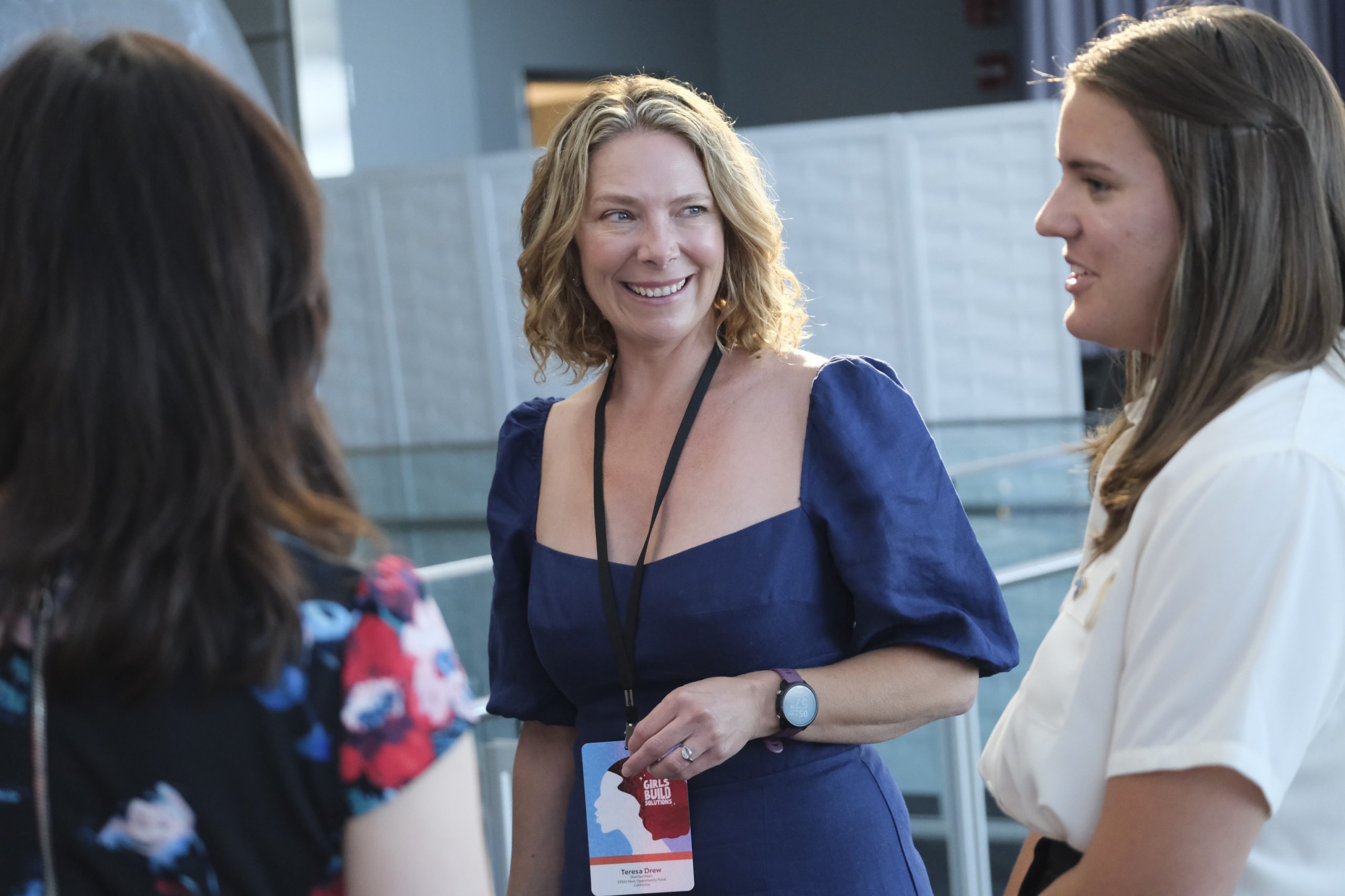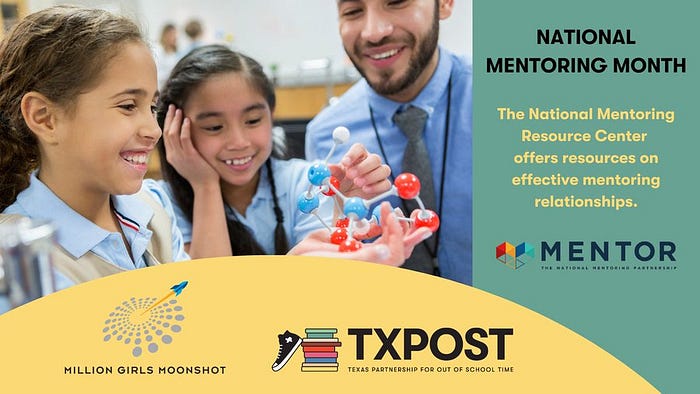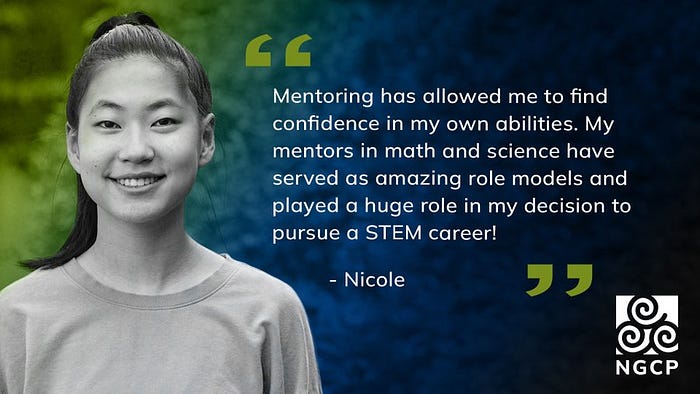We love starting the new year with a spotlight on mentoring. For this year’s National Mentoring campaign help us reach the Million Girls Moonshot. With the Million Girls Moonshot, STEM Next Opportunity Fund is re-imagining who can engineer, who can build, who can invent. The Moonshot aims to inspire the next generation of innovators by engaging one million more girls in STEM opportunities by 2025. The path to becoming a computer scientist, medical researcher, or chemical engineer is long and comes with opportunities and challenges. Mentors are key on this journey, helping youth sustain interest, overcome obstacles, and believe that they belong in STEM. As a mentor, you have the superpower of helping youth find passion and purpose in STEM.
From personal experience we know the impact that mentors can make. We share our personal stories.
Linda: I met hundreds of girls and witnessed their experiences with role models and mentors as CEO of Techbridge Girls. This past year I heard from an alumna of Techbridge Girls who is a software engineering project manager at a large tech company. She reached out when she got a promotion and expressed gratitude for helping her get to where she is today. I wrote letters of support when she applied to college and supported her leadership by inviting her to present at a tech conference for girls. I have been a champion for her persistence in the world of tech. I am especially pleased that she gives back and mentors girls.
Teresa: Mentors come in many forms and at different times in our lives. In 2022, we launched the Moonshot Flight Crew, a cadre of 16 inspiring youth, ranging in age and background, who have developed their STEM interest in experiences outside the classroom. These girls share their stories far and wide. They are committed to mentoring their peers, demonstrating that barriers can be broken, and showing how perseverance leads to greater opportunity. I watched as the young STEM leaders became a group of peer-mentors for one other. Their personal journeys provide evidence of possibilities. They created community and are now life-long champions of each another. There is nothing more powerful than being part of women and girls supporting each other. Mentorship and peer-mentorship does that.
Some youth navigate well in school and careers, reaching out to an array of adults, and accessing an abundance of resources. Adults help them and pave the way to internships, offer guidance during a critical juncture in their academic journey, and introduce them to colleagues who expand their networks and land them the jobs of their dreams.
What about youth who have potential but who don’t ask for help or guidance? We advocate for these youth and put forth this challenge — to collectively activate mentoring networks and opportunities for all youth, beginning with those with potential and greatest need and least access. Here are six ideas for this year’s National Mentor Month. We hope they inspire you throughout 2023.
1. Think deeply how you can sustain lasting relationships. For example, provide your business card AND invite youth to check in as they make summer plans, apply for scholarships, or take on an internship. This will give them practice working at relationships. Invite them to a cultural or work-related function where they can practice social and networking skills. Be proactive and check-in to let youth know you want to hear from them. These efforts can help youth become comfortable reaching out for help. This is especially important for youth who might not have the confidence or experience interacting with adults or are unsure if they fit in STEM.
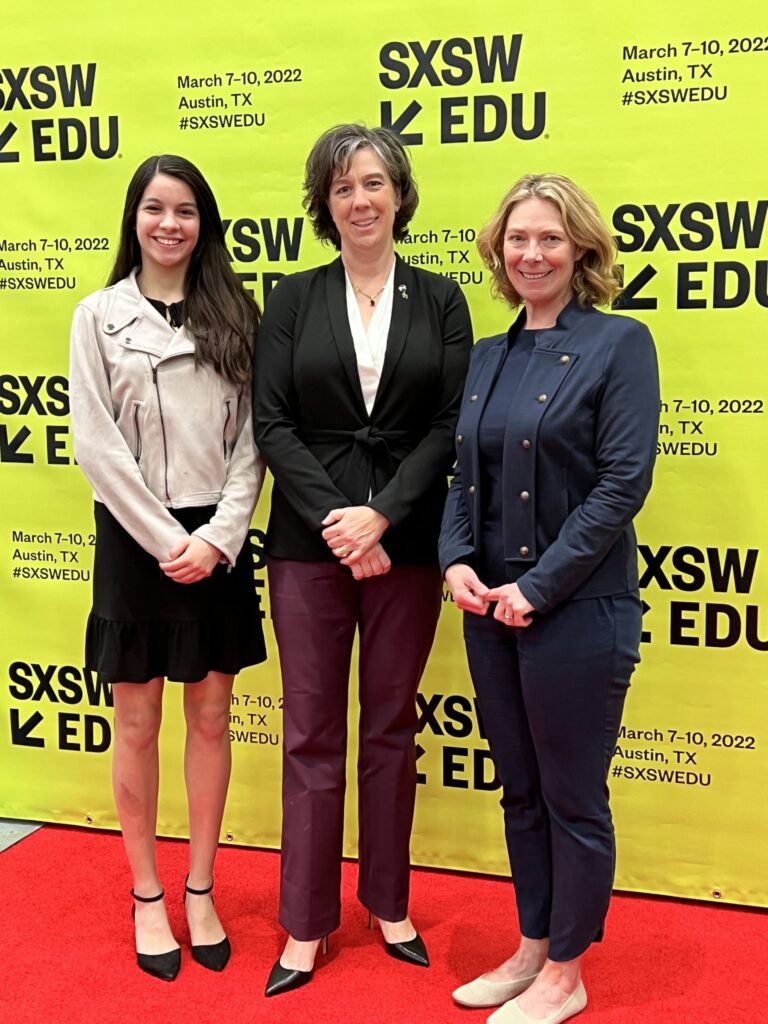
2022 Flight Crew Member, Amanda G.; Holly Ridings, first woman chief flight director at NASA; and Teresa Drew, deputy director STEM Next
2. Open your networks and expand the social networks of youth. Reach out to friends and colleagues who can be a mentor and bring diverse backgrounds, experience, interests, and resources. Make a virtual introduction or set up an in-person meetup to launch a mentoring opportunity. Introduce youth to professional organizations like the Society of Women Engineers, National Society of Black Engineers, and National Center for Women and Information Technology, which include outreach as part of their mission.
3. Talk about your personal experiences accessing mentors. Help youth understand how building social capital takes time and practice. Bring to life how you mobilized relationships and sought help when needed. Knowing how you overcame fears about asking for help will be reassuring. Knowing how to nurture relationships, express gratitude, and ask for help are lifelong lessons for success.
4. Support peer-to-peer mentorship among youth. What better way to learn about applying for internships, preparing for interviews, and overcoming the imposter syndrome in STEM classes than from someone who has recently been through the process? The Million Girls Moonshot understands the value of peer mentors and built this element into its Flight Crew program.
5. Prioritize youth who may need additional support to realize their dreams in STEM. We are pleased to share this new resource, Inclusive Mentoring for Youth with Disabilities Supplement to the Elements of Effective Practice for Mentoring developed by MENTOR and Partners for Youth with Disabilities. Unlike their peers, youth who are disabled may have less access to opportunities where they can see a future in STEM. Mentors can be a source of support, dispel stereotypes, and show by example how to advocate for oneself. This resource helps mentoring programs assess how well they are doing and identify ways to deepen their commitment to inclusion.
6. Help caregivers understand the value of mentors and how they can encourage their child to build relationships with adults. Host a workshop for families and help them understand that building social capital is an important skill for their child to develop — just as important as learning math, reading, and writing. For families who need support, help them connect with teachers, counselors, and educators in afterschool programs who can help find mentors for their child. Connect them to resources like EngineerGirl and the National Girls Collaborative Project’s Role Model and Mentoring Resources.
This year let’s make mentoring more than a month-long exercise. Let’s become mentors who nurture relationships that build social capital. Let’s do our part to decrease the divide between youth born into families and communities with resourced-networks and those with STEM potential that can be activated with help from mentors. Learn more about the Million Girls Moonshot and lend your support to this cause.
Linda Kekelis. I am an advisor for The Family Engagement Project for STEM Next Opportunity Fund. I have devoted my lifetime to supporting families, educators, and role models in encouraging girls in STEM. I know firsthand how mentors can be the “secret sauce” in helping inspire and sustain girls’ engagement in STEM.
Teresa Drew. I am the Deputy Director of STEM Next Opportunity Fund and leading the Million Girls Moonshot initiative: Reimagining who can engineer, who can build and who can invent.
Learn more about the Million Girls Moonshot in Go the Distance: A case study review of out-of-school time programs & youth impacted by the Million Girls Moonshot.


